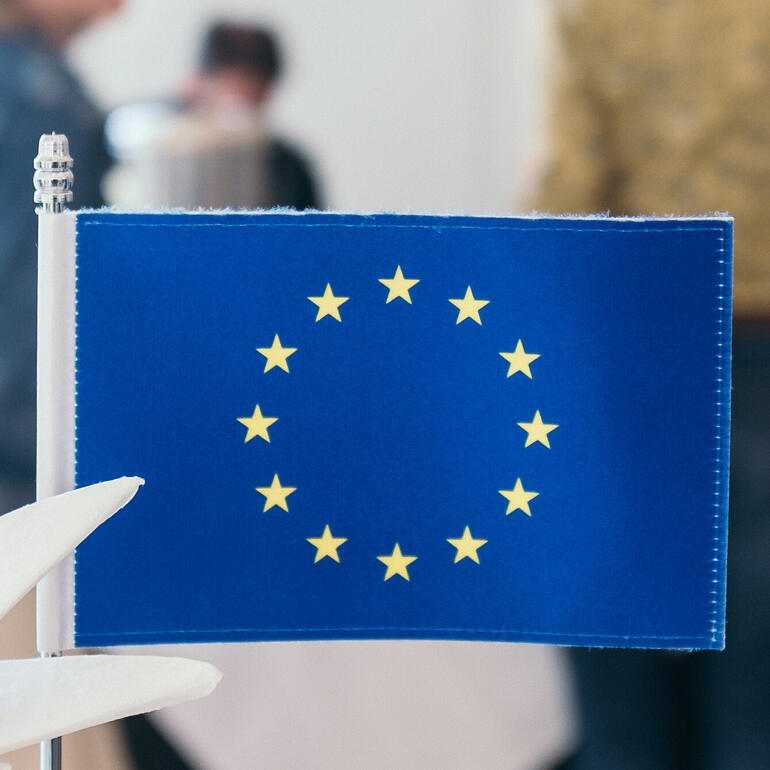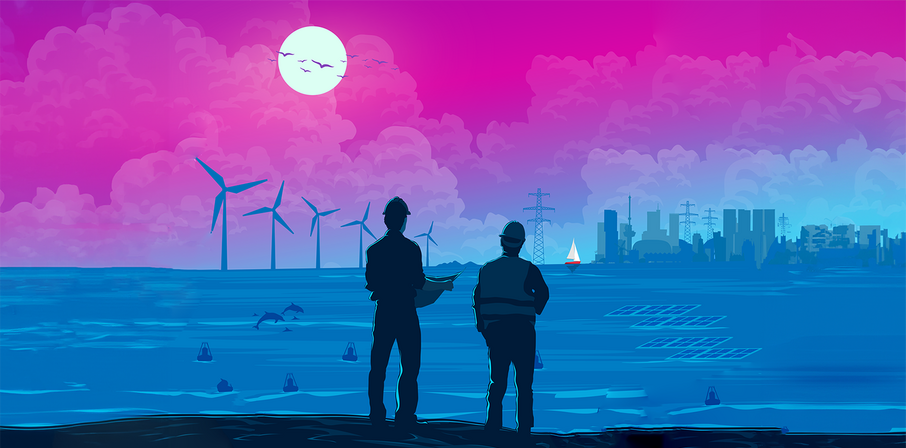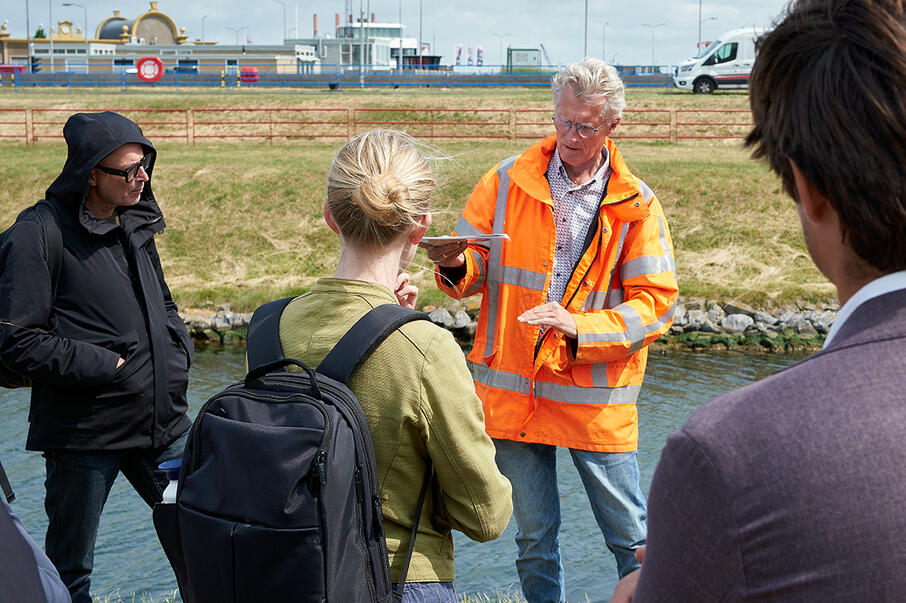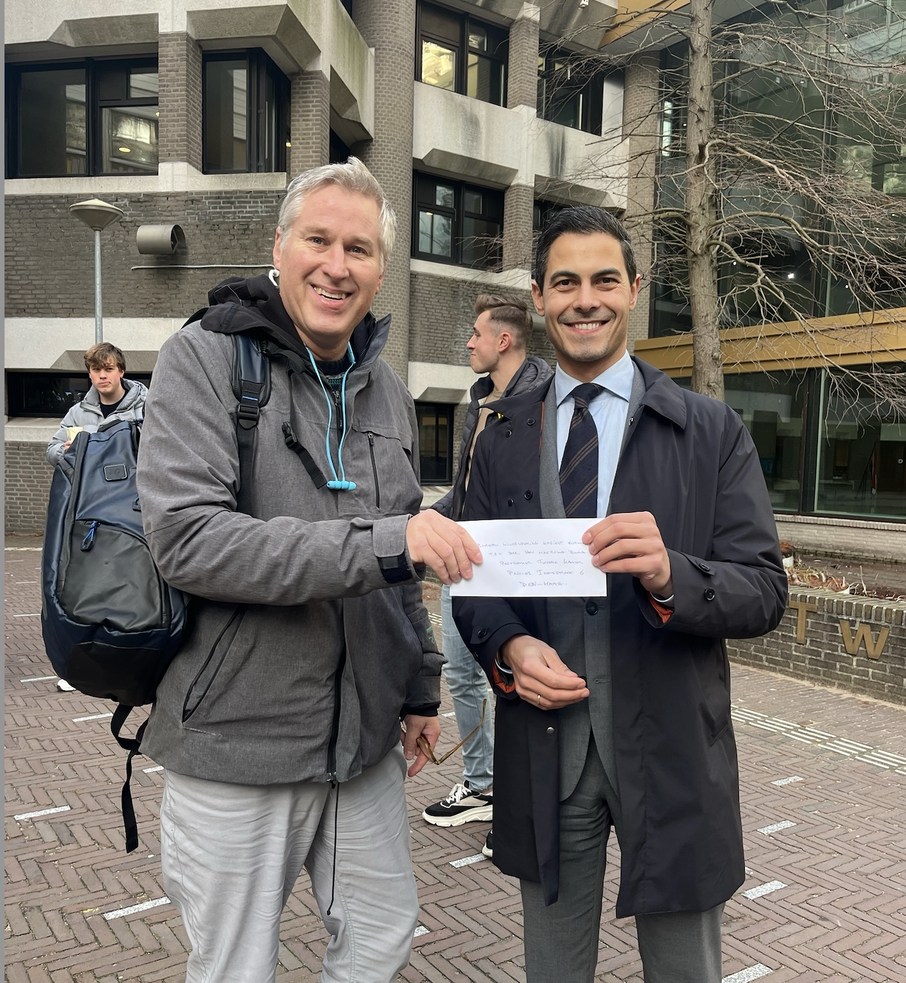Bridging knowledge gaps in Offshore Renewable Energy: An interview with Sanne Moleman of Deftiq
Offshore For Sure Interview Release!
Offshore For Sure (O4S) | 23/06/2025
With the offshore renewable energy sector continuously evolving in contemporary times, how do we ensure knowledge keeps up?
In this exclusive interview, Sanne Moleman, online course developer at Deftiq, shares some of the achievements and challenges in developing online courses for a comparatively novel offshore renewable energy industry.
She also discusses the long-term impact the ORE courses developed by Deftiq will have on learning and skills development in the Offshore Renewable Energy Industry.
Read the full interview to learn more!!
1. Can you introduce yourself and describe your role at Deftiq?
My name is Sanne, I am 30 years old, and I have a background in English literature. Since 2021, I’ve been working at Deftiq as an online course developer. My job is to take complicated topics and turn them into clear and engagiing online lessons. I work with a great team, and I especially want to highlight our graphic designers—they do an amazing job bringing colour and life to our courses. This means I translate complex subject matters into engaging and accessible digital learning experiences. However, I must stress that I am but one part of an incredibly talented team here at Deftiq. Especially our graphic designers bring colour and life to our courses.
2. What does Deftiq do and what is their link with offshore renewables?
Deftiq is a Rotterdam-based company specialising in the development of online training solutions tailored for technical professionals across various sectors, including construction, industry, and offshore renewable energy (ORE). Our e-learning platform offers practical, accessible, and interactive courses designed to enhance the skills and safety of workers in these fields.
Deftiq provides comprehensive online courses focusing on ORE technologies such as wind, tidal, and wave energy. Our courses are suitable for students new entrants, professionals and technology developers who need to deepen their knowledge of the ORE sector and to upskill. We have been involved in EU FLORES and EU Pact for Skills, and have developed courses as part of the ENCORE project. Currently, we are developing new courses for Offshore For Sure. Perhaps you have seen our courses displayed at the Wereldhavendagen 2024 in Rotterdam! If you missed that, you can find all ORE courses on our website.
3. Which courses have worked on?
I have developed and written several courses for the Offshore For Sure project, including courses on cyber security, nature enhancement and multi-use in the ORE sector.
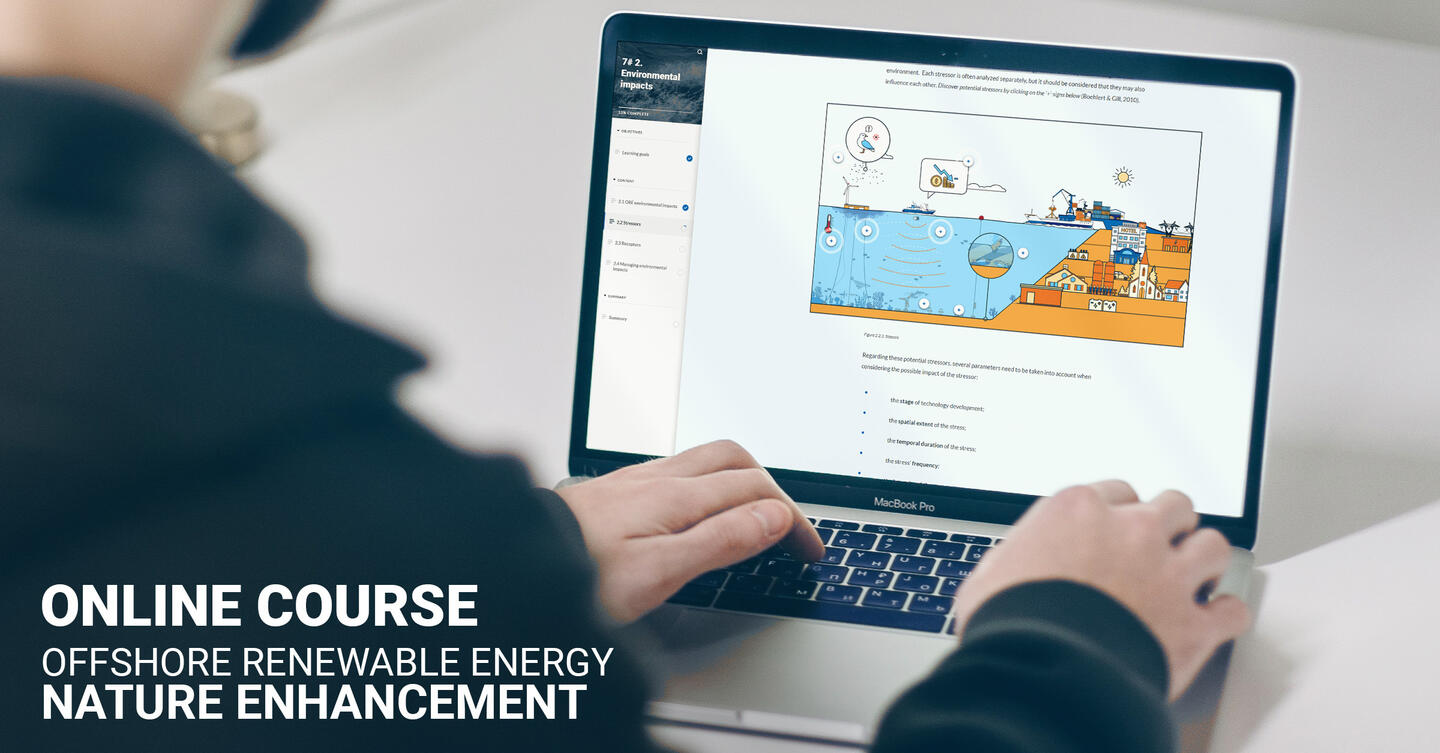
4. Does the Offshore For Sure partnership provide expert knowledge support in developing the courses? If so, can you share an example of how you collaborate with the partners and how this has influenced the content? (e.g. Oceans of Energy project instruction, Cyber Security with input from HOWEST, etc)
Our courses have been significantly enriched thanks to the input and collaboration of several key partners.
For instance, Peter Scheijgrond from Bluespring provided crucial insights for both the ENCORE and Offshore For Sure courses. His suggestion to include a section on policy differences between the Netherlands and Belgium in the Nature Enhancement course helped us clearly demonstrate how national frameworks shape the implementation of biodiversity strategies in offshore projects.
In the development of our course on Cybersecurity and NIS2, the expertise of HOWEST was instrumental. Their guidance helped us navigate the broad scope of cybersecurity by identifying the right focus and audience—making the course more relevant and targeted for professionals in offshore renewables.
Finally, our educational packages on offshore renewable energy were shaped by input from a diverse sounding board, including institutions like Avans and Scalda. Their perspectives were key in identifying knowledge gaps and aligning course content with real educational needs in the field.
Together, these collaborations have made our courses more practical, relevant, and impactful for learners across the sector.
5. What strategies do you use to make learning engaging and accessible for different audiences in the ORE, including industry professionals and new entrants?
Personally, when creating courses, I focus on the visuals. This does not mean that I solely focus on the aesthetic value of our educational packages. What I mean by this is that I want to make our online courses feel real.
For example, when creating a course for Oceans of Energy to train staff on their offshore solar farm system, I sent our graphic designers a large collection of reference photos. These photos, taken at the offshore solar farm in question, were incorporated into the visuals of our course. This focus on scenario-based learning and recognition of real world equipment, settings and visuals helps to educate future experts.
6. Given the dynamic nature and relative novelty of the ORE industry, what are some challenges in designing an online course that remains relevant and effective over time?
Since many offshore pilot projects are first of its kind, this will often lead to adopting a learning-by-doing approach. While this approach is certainly touched on in our courses, I tend to focus on two things: historical data from sister sectors and principles-based learning. For example, we can learn a lot from the historical data of offshore wind farms, and we can emphasise strategies such as risk-based design and resilience thinking rather than prescribing prescriptive rules.
This is all to say that we are well aware of the novelty of the sector. We do our very best to ensure that our courses have staying power, and add the newest case studies and examples where we can. Should the playing field change drastically in the coming years, then we can always go back and add to or change our content. That is part of the beauty of online learning courses.
7. Can you share a specific challenge you have faced while developing online courses in offshore renewable energy? How did you overcome it?
My one big writing challenge has always been a lack of sources, which can be attributed to the relative novelty of the sector. Thankfully, the solution is clear: meetings, calls and e-mails. Collaboration leads to understanding, and Deftiq is lucky to be in contact with multiple knowledgeable experts and institutions who can offer insight into the more technical aspects of our courses.
For example, I wanted to add a prominent case study of a digital twin in the ORE sector to our course on digital twins, but I had no idea where to look. That’s when a colleague reminded me: Tocardo, another partner in the Offshore For Sure project, has been developing a digital twin of its turbine technology, using data from the tidal plant that operated in the Eastern Scheldt barrier. Perfect!
8. How do you see Deftiq’s work supporting broader education and capacity-building efforts in the offshore renewable energy sector?
Deftiq’s educational packages exist to invest in future generations of offshore renewable energy experts. Knowledge acquired from our courses will help start future projects more easily and cost-efficiently. Ultimately, we serve as a building block for the future of the ORE sector.
9. What long-term impact do you hope these courses will have on learning and skills development in the Offshore Renewable Energy Industry?
Regardless of the topic, I end every single one of our courses on renewables with a final section that looks towards the future of offshore renewables. Generally, there are three things that come up almost every single time I write this section:
- We must provide education.
- We must share our knowledge.
- We must connect projects and partners to share resources such as technology, expertise and infrastructure.
You can already see where our online learning courses fit in. We can only share and pool our knowledge if it is accessible, properly formatted and distributed. As such, Deftiq aims to contribute to the standardization of the sector. By educating future experts today, we can secure a bright tomorrow.
Offshore For Sure and ORE online courses
The Offshore For Sure project aims to establish a sustainable cross-border collaboration in education and training for the Offshore Renewable Energy (ORE) sector by bringing together industry, research, and public partners.
As part of this effort, Deftiq contributes with a series of specialised online courses in ORE to help bridge the knowledge gap.
Follow Deftiq on their website for more information.



